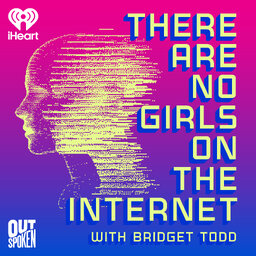DISINFORMED: Boys are being radicalized by sexist, racist online networks and she went undercover to expose them
Sometimes called “The Manosphere,” a network of sexist, racist online communities are taking advantage of algorithms to indoctrinate young men into extreme ideology.
Everyday Feminism creator Laura Bates researched these spaces for her book Men Who Hate: From Incels to Pickup Artists, the Truth about Extreme Misogyny and how it Affects Us All.
Check out Laura’s book: https://www.npr.org/2021/03/13/976379494/manosphere-world-of-incels-exposed-in-laura-bates-book-men-who-hate-women
Learn more about your ad-choices at https://www.iheartpodcastnetwork.com
In 1 playlist(s)
There Are No Girls on the Internet
Marginalized voices have always been at the forefront of the internet, yet our stories often go over…Social links
Follow podcast
Recent clips

Amazon Ring Super Bowl Ad BACKFIRES; YouTubers Exploit Women's Arrest Videos; Salesforce CEO ICE "Joke" – NEWS ROUNDUP!
1:10:54

University of Oklahoma Trans Instructor's Attorney Still in the Fight After Appeal Denied
47:18

Should You Trust Andrew Huberman? What CBS's Epstein Disaster Reveals About Wellness Gurus
1:32:51
 There Are No Girls on the Internet
There Are No Girls on the Internet